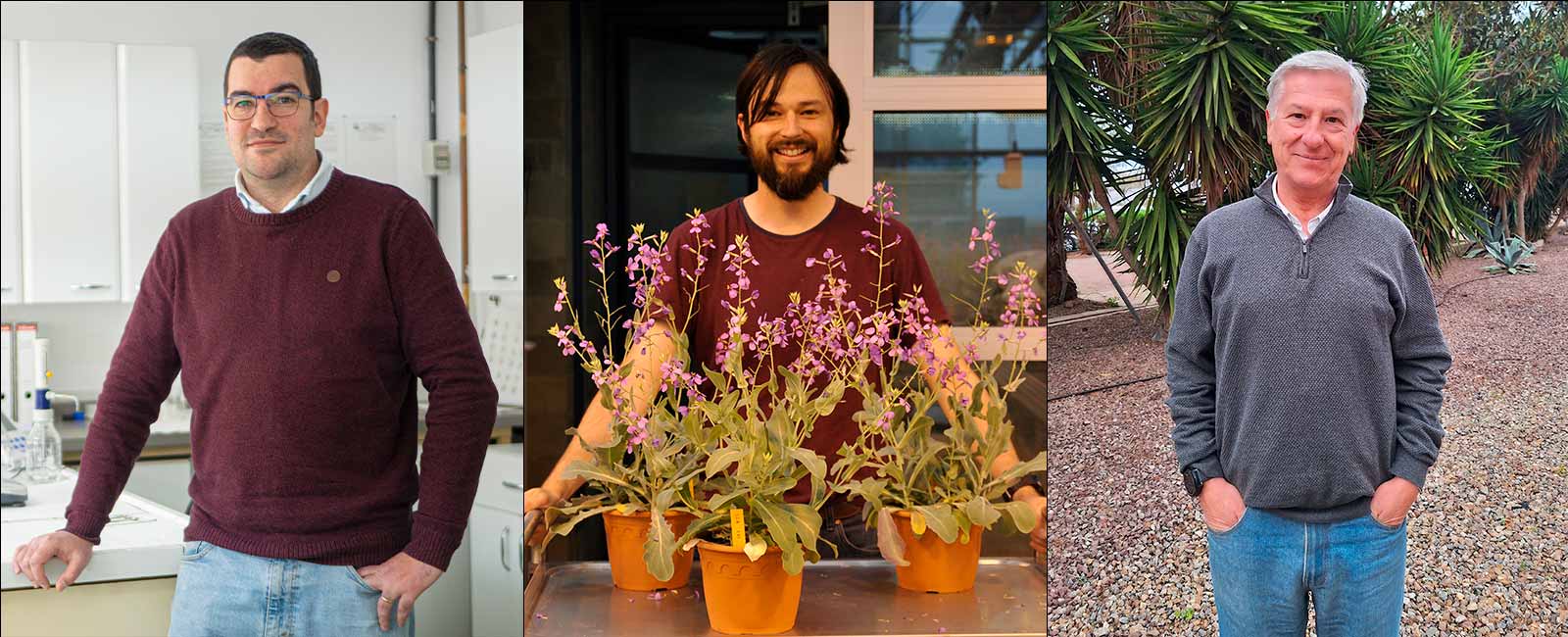RESEARCH TEAM
Principal investigators: Manuel Delgado Baquerizo (Institute of Natural Resources and Agrobiology of Seville, CSIC); Francisco Ignacio Pugnaire de Iraola (Arid Zone Experimental Station, CSIC, Almería); Rubén Torices Blanco (School of Experimental Sciences and Technology, Universidad Rey Juan Carlos, Madrid)
Team members: Mohamed Alifriqui (Cadi Ayyad University); Inés Álvarez Fernández (Royal Botanical Gardens, CSIC); Francisco Borges de Almeida Rocha (Institute of Natural Resources and Agrobiology of Seville, CSIC); Francisco Jesús Diaz Rodríguez (Institute of Natural Resources and Agrobiology of Seville, CSIC); Elena Dolores Díaz Santiago (Experimental Station of Arid Zones, CSIC); Catalina Garzón Ladino (Institute of Natural Resources and Agrobiology of Seville, CSIC); Aurora Gaxiola Alcántar (UC Chile University); Luis Giménez Benavides (Rey Juan Carlos University); María José Jorquera Barquero (Experimental Station of Arid Zones, CSIC); Christian Kindler (Experimental Station of Arid Zones, CSIC); Esteban Manrique Reol (Royal Botanical Gardens, CSIC); Pilar Martínez Hidalgo (Rey Juan Carlos University); Luna Medrano González (Institute of Natural Resources and Agrobiology of Seville, CSIC); Luis Merino Martín (Rey Juan Carlos University); Gaia Micco (Experimental Station of Arid Zones, CSIC); Isabel Miralles Mellado (University of Almería); Antonio Jesús Muñoz Pajares (University of Granada); José Carlos Rubén Retuerto Franco (University of Santiag de Compostela); Susana Rodríguez Echeverría (University of Coimbra, Portugal); Tadeo Saez Sandino (Pablo de Olavide University); Lucia de Soto Suárez (Complutense University of Madrid); Pablo Vargas Gómez (Royal Botanical Gardens, CSIC); Tamara María Villaverde Hidalgo (Rey Juan Carlos University).
DESCRIPTION
Soil microbes and plants have co-evolved over millions of years. The interaction between plants and soil operates as a fundamental axis of terrestrial ecosystem functioning through processes like symbiosis, leaf decomposition or pathogenesis. Further, soil microorganisms are essential for many ecosystem services: they help sequester carbon, keep soils fertile, and are an important biodiversity conservation resource. Despite this, patterns of co-evolution in plant and soil communities remain virtually unknown.
“What we intend with this project is to gain a better understanding of the evolution of microorganisms and plants at different spatial scales, from local up to global, and to identify hitherto unknown interactions between plants and organisms, and how they have evolved,” explains Manuel Delgado Baquerizo, a scientific researcher at the Institute of Natural Resources and Agrobiology of Seville (IRNAS-CSIC) and one of the three PIs on the awardee project.
The study will consider three spatial scales – local, regional and global –, with the aim of mapping co-evolutionary patterns subjected to millions of years of evolution and involving the most important group of vascular plants on our planet: conifers and angiosperms. “One of the big challenges in any ecological or evolutionary study is to unite these three layers,” says Rubén Torices, Associate Professor in the Department of Biology and Geology, Physics and Chemistry in the School of Experimental Sciences and Technology at Universidad Rey Juan Carlos. “And our goal is to see if we can spot evolutionary patterns that operate consistently across them.”
The team believes this project could prove transformative for future science on plant-microbe interactions. “If we are successful, we will find interactions never described before,” Delgado remarks. “This may open up new avenues of research with an impact on food production and ecosystem conservation, to add to the new research directions deriving from the project itself.”
Francisco Pugnaire, a research professor in the Arid Zones Experimental Station (CSIC), also envisages possible applications in the field of ecological restoration. “Some restoration efforts fail because they have not taken account of plant-soil interactions. Not only is this a waste of time and money, but it can also lead to greater degradation.” In this respect, one leg of the project will be devoted to understanding how climate change will affect microbial communities, which have evolved alongside plants over millions of years and may suffer alteration in a context of global warming and reduced precipitation.

